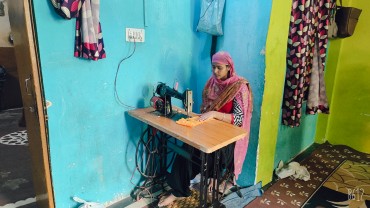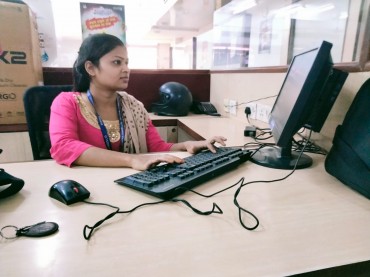Gender Sensitization is one basic requirement for the normal development of an individual. Without being sensitive to the needs of a particular gender, an individual may refrain from understanding the opposite gender and in some acute cases even him or herself. The need for this sensitivity has been felt and realized through times immemorial and in almost all kinds of human existence, across the globe. But somehow in the recent times, a much stronger need is felt and realized to talk and discuss about this sensitive topic both on a Personal and Professional front.
Particularly in a country like India, with the vast diversity existing in terms of its customs, traditions, rituals, social values, family beliefs and individual perception, the need for a More Systematic, Well Planned and More Professional Approach is desired to inculcate this sensitivity and primarily highlight the contribution of both the genders in creation and development of a well balanced society.
A deep concern for the Task Force has been that the weakest aspect of institutions of higher education is their lack of gender sensitivity. Therefore it became evident that there is an urgent need to provide all institutions under the UGC with clear guidelines for addressing sexual harassment and for suggestions as to how to improve gender equality on their campuses.

Gender Sensitization
Image Source: DailyMail
D Y PATIL University School of Hospitality and Tourism Studies, Navi Mumbai, realized that there is a need to provide steps to safeguard women’s safety and for men to be assured that such measures are not an indication of discrimination against the male population. First Lady of D Y Patil University Mrs. Shivani V Patil took the onus of training and awareness-raising in educational set- up, at workplace in order that society can eliminate gender-based prejudice and thereby change stereotyped working cultures as regards to the roles and abilities of women and men, including attitude towards women in leadership positions.
“We decided we wanted to be the best on gender, and that change permeated the institution. It is a different consciousness. Both the genders need to take stand at their own level, to support and promote the upliftment and wellness of their own and the opposite gender, so as to overcome any sort of differentiation or harassment” says Mrs. Shivani V Patil..
D Y Patil University conducts Annual Gender Audit integrating gender in to Institution’s activities and structures which has dimensions that are both external and internal to the Institution itself. Externally, gender integration fosters the inclusion of and benefits to women and men who participate in or who are affected by an organization’s projects, services, or initiatives. Internally, gender integration promotes women’s leadership and equality within the organization’s policies and structures and provides benefits for both women and men in the process.
As per the guidelines laid by the Vishaka Committee there is also a need to have an INTERNAL COMPLAINT COMMITTEE in place to tackle any problem that arises regarding sexual harassment. “It‘s a continuous process. It‘s not a nine day wonder, and with gender mainstreaming, both men and women are made conscious of their capacity to improve their quality of life through the development of their potential” added by Mrs. Shivani V Patil.
There are several programs conducted for the staff as well as students like self defense workshop, Women’s day celebration, Yoga for students, talk on lifestyle management by doctors, fire safety workshop, etc. People in D Y Patil University are educated in a way that when there is a movement on gender issues, they will not be defensive. They want to make sure people understand and support gender equity. Mrs Shivani V Patil says “D Y Patil University is gender balanced organization, where staff respect each other” which is supported by the employees. This message catalyzes change in the communities. An organization where men and women work as a team, without posing any threats to each other, a true partnership.





















































Comments